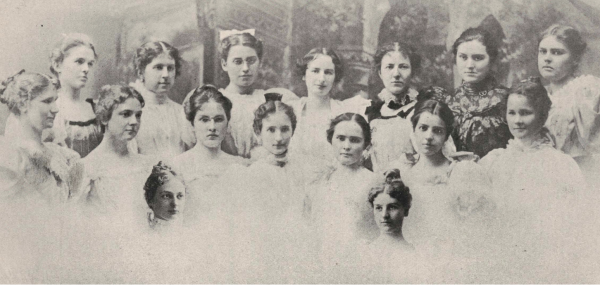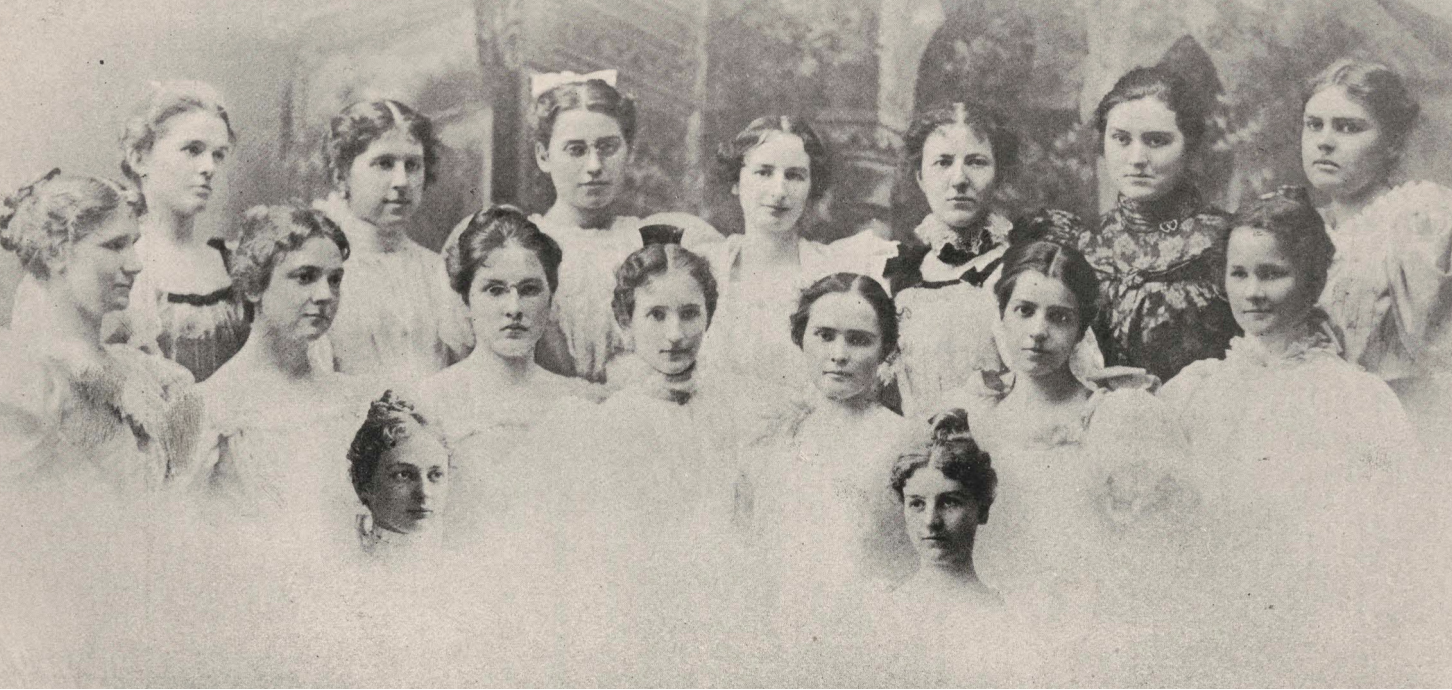On Feb. 20, Sigma Psi, Case Western Reserve University’s oldest and only local sorority, announced their intention to close at the end of the academic year. Their announcement was met with a mix of heartbreak and resilience from both their current and former members as well as the greater Greek community at CWRU.
“To best align with our expectations of the organization and to honor our legacy and our history, we have decided to close the collegiate chapter at the end of the semester,” Sigma Psi posted on their Instagram.
Sophie Bruch, a second-year history and theater student who is also the president of Sigma Psi, noted that the decision to close the chapter was made two weeks before their announcement on Instagram, and alumni of the organization were informed hours before. The announcement occurred minutes after the Giortaste Awards, CWRU Greek Life’s annual awards ceremony.
“There were a couple of days that were kind of hard, but I would say our bond as sisters has actually improved greatly,” Bruch said regarding active members’ vote to close the chapter. “Since then we’ve been able to just focus on being friends and doing fun things together. The energy in the house is so much better and so different than in the past couple months. It is really nice … we can close out the collegiate chapter on a high.”
Hannah Shindler, a third-year neuroscience student and vice president of membership development of Sigma Psi, said, “It was difficult to operate the chapter with the amount of people we had; everyone was burnt out and it was difficult to focus on academics.”
She also emphasized the effects of COVID-19 and how the pandemic negatively affected Sigma Psi’s membership. She said, “It could have happened to any sorority, but we were just a casualty of it all.”
The formal announcement on their Instagram post corroborates this sentiment, pointing out that post pandemic, “the size of [their] chapter has dwindled and [the] chapter has had to adapt considerably. Earlier this semester we realized that we as an organization are not able to operate at the standard we hold ourselves to given our current chapter size.”
An analysis of recruitment group photos further illustrates this trend. For example in 2016, there were 60 members at their formal recruitment events. 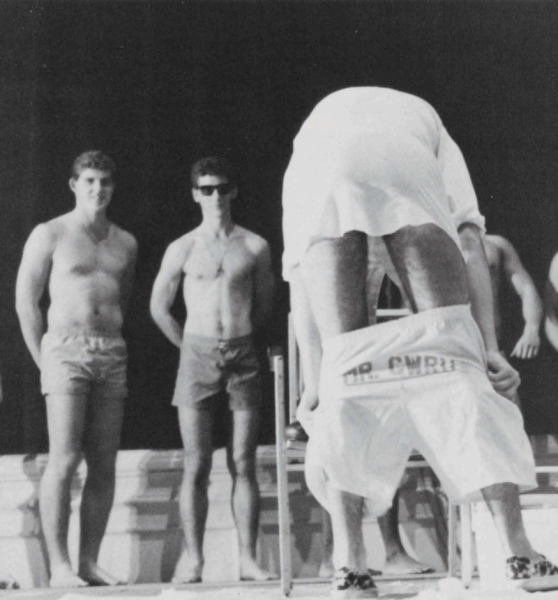 In 2020, this number was 26, and in 2023 there were only 11. Currently, their website notes that there are 13 active members, none of whom are from the Class of 2027. According to the university, the overall number of undergraduate students in Greek Life has decreased from about 29% in 2019 to 21% in 2024.
In 2020, this number was 26, and in 2023 there were only 11. Currently, their website notes that there are 13 active members, none of whom are from the Class of 2027. According to the university, the overall number of undergraduate students in Greek Life has decreased from about 29% in 2019 to 21% in 2024.
Those inside the Greek Life community at CWRU recognize the uniqueness that came from being a local sorority—meaning that Sigma Psi’s only chapter exists at CWRU. This presented special challenges when it came to recruiting members after COVID-19.
“Every chapter has struggled with recruitment following COVID-19, when numbers dropped so low, but without national support, Sigma Psi had less resources to fall back on, unlike other [National Panhellenic Conference] NPC chapters,” Annie Mott, president of the Panhellenic Council (PHC), said.
She notes that the programming provided by PHC, along with their recruitment and membership requirements provided by PHC, “Unfortunately works [only] to a certain extent.”
Sigma Psi as an institution has been around since 1897 and is rich in history and traditions. Shindler notes that Greek Life started originally as a study group. She said, “It had stemmed off of a group that literally met for the study of Greek. Eventually, our founders broke off and founded Sigma Psi.”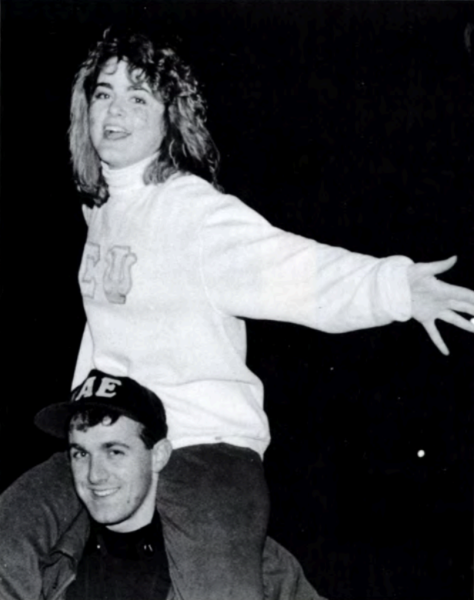
Sigma Psi is one of the oldest local sororities in the world. Over their existence, Sigma Psi has endured several recruitment-related challenges. In the 1977-78 academic year, there were only two sororities left on CWRU’s campus. The decline in sororities was caused by the “social pressures” of the 1960s and the creation of co-ed housing in the 1970s.
The other sorority that existed during the 1977-78 academic year was Delta Phi Upsilon, which started out as a local sorority and later became Phi Mu in 1985. Starting in 1979, Delta Phi Upsilon began to look at going down the national route, while Sigma Psi stayed committed to remaining local to CWRU.
The first 1897 initiation ceremony occurred on the roof of Clark Hall. “To celebrate the first pledge class beyond the founders, they set off fireworks off of Clark Hall, which almost burnt the building down,” Shindler said. “There’s a room named after Sigma Psi in Clark Hall, too.”
Bruch mentioned that one of Sigma Psi’s traditions is that new members are given a s’more-scented candle that’s labeled “Clark Hall” and has a daffodil outline.

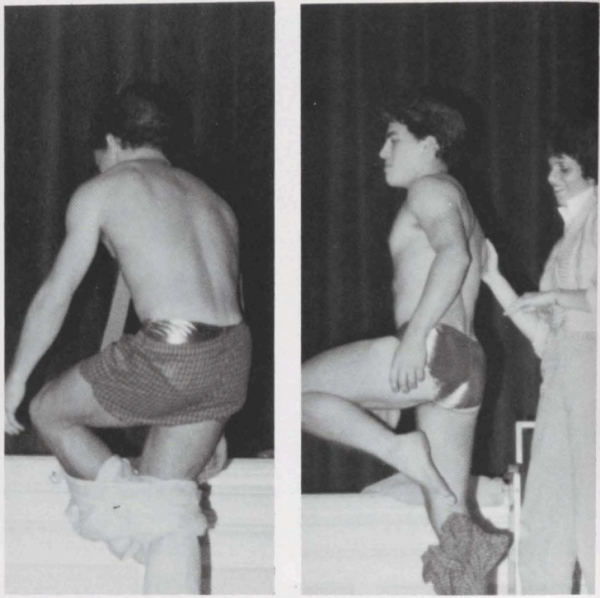
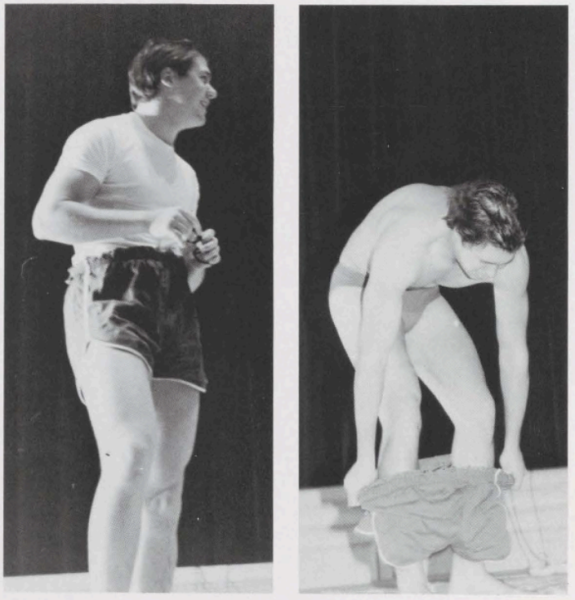 Members and alumni of Sigma Psi highlighted their love for the Sigma Psi community.
Members and alumni of Sigma Psi highlighted their love for the Sigma Psi community.
Sigma Psi Chapter Advising Chair Emily Pestello, a Sigma Psi alumna who graduated CWRU in 2017, said, “it didn’t matter like what your major was or like what kinds of things you like, it was just a group of people who wanted to get to know other people and create connections and relationships … We really have always trailblazed and done what we thought was best to best support the students who might want to be in the community with us.”
Many members see Sigma Psi’s legacy as accepting students for who they are, with an emphasis on providing a space in Greek Life for LGBTQIA+ students.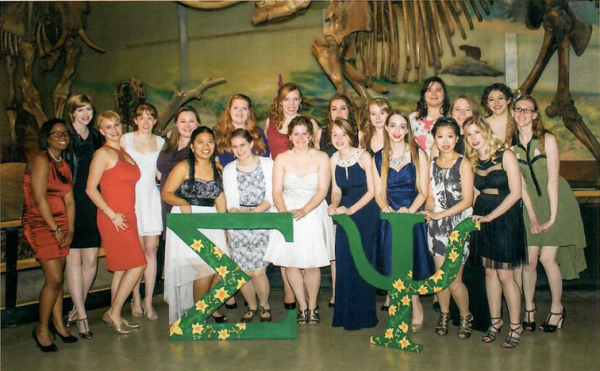
“I hope that this will change, but [in] Greek Life, because of nationals and stuff, it is often difficult to have gender inclusive sororities and frats sometimes, and Sigma Psi without nationals is a much more gender inclusive option for people,” Brush said, noting that Sigma Psi accepts all individuals who do not solely identify as male.
Many sororities, both at CWRU and elsewhere in the United States, follow the rules and guidance of their national organization when it comes to admitting transgender and non-binary students, even though CWRU allows students to rush into the organization that best  matches their gender identity.
matches their gender identity.
Pestello believes Sigma Psi helped lay the foundations for Greek Life chapters to push back on their nationals, especially regarding gender inclusivity and acceptance.
“I think a large part of our legacy is generally just come as you are, we will accept you and love you so long as you are welcoming of other people who are themselves. So it’s not just gender and sexuality, but it includes gender and sexuality,” Bruch said.
Sigma Psi’s recent main event called Mx. CWRU, inspired by the Mr. CWRU event from the 1970s, highlights their inclusivity. Pestello explains that it “started [as] a male beauty pageant, kind of to call out the ridiculousness of the female beauty pageant world where organizations would sponsor someone, they would do a talent, there would be a question and answer period, the audience would vote and eventually someone would be crowned Mr. CWRU.” 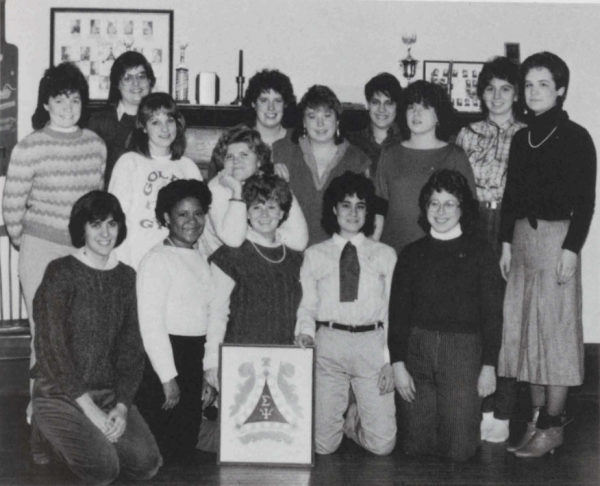 The event was changed in 2018 with the Mx. honorific to be more gender inclusive.
The event was changed in 2018 with the Mx. honorific to be more gender inclusive.
Ironically, the first Mr. CWRU event, held in 1979, elected a student from the Cleveland Institute of Music as Mr. CWRU. He was crowned along with a Mr. Macho for the runner-up, with two special awards going to Mr. Congeniality and Mr. Photogenic. The prize of being Mr. CWRU was a dinner for two and a bottle of champagne, while the winner’s sponsoring organization received a keg of beer.
Some national sororities might not recognize local chapters if current students in Sigma Psi want to continue as part of CWRU’s Greek Life.
“The specific wording could determine if a previous member of Sigma Psi is eligible for membership in their NPC sorority,” Mott said. “NPC sororities can’t give bids to those who were previously initiated into another NPC sorority, but sometimes these NPC sororities don’t recognize a local chapter.”
Bruch and Pestello spoke of the logistics of closing the sorority, such as clearing out their house and planning a goodbye party for the next academic year.
Until the end of the semester, Sigma Psi is still a functioning sorority, where many bonding trips and other activities are planned.
“We’re still going to be active and planning events and doing things and raising money and all that kind of stuff that we already are doing,” Pestello said. “But losing the undergraduate chapter, I will miss that mentorship and advising role that I’ve gotten to play the last several years.”